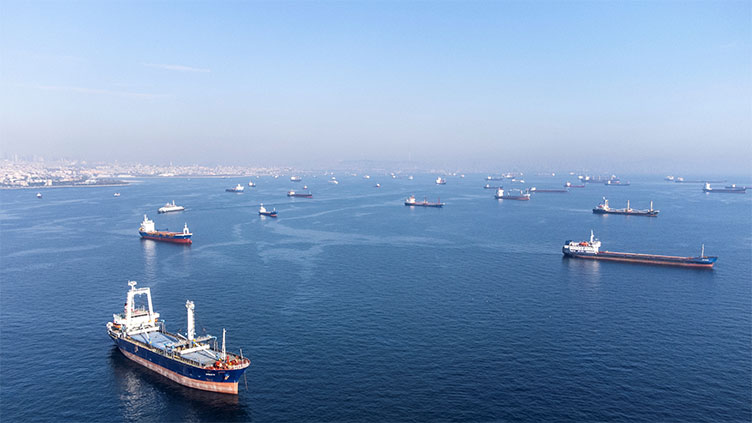UN backs Turkey, Ukraine in call for 120-day grain deal rollover

World
UN backed Turkey and Ukraine on Thursday by calling for a 120-day rollover of an agreement.
UNITED NATIONS (Reuters) - The United Nations backed Turkey and Ukraine on Thursday by calling for a 120-day rollover of an agreement allowing the safe export of grain from several Ukrainian Black Sea ports after Russia said it would only extend the pact for 60 days.
The pact is due to expire on Saturday. It was brokered with Russia and Ukraine by the United Nations and Turkey in July - and renewed in November - to combat a global food crisis that was fueled in part by Russia's Feb. 24, 2022, invasion of neighboring Ukraine and blockade of its Black Sea grain exports.
"For us, the text in the agreement is clear and it calls for a 120-day rollover," U.N. spokesman Stephane Dujarric told Reuters when asked about remarks by Turkey.
Turkey said on Wednesday that it would continue talks to extend the deal for 120 days rather than 60 days. Ukraine has also said the agreement should be renewed for 120 days.
"The deal is being extended for 60 days," Russian Foreign Ministry spokeswoman Maria Zakharova told reporters on Thursday, when asked to comment on Dujarric's remarks.
The difference in the Russian and U.N. interpretation of the duration of the deal "may simply be a display of (the U.N.'s) incompetence," she added.
Dujarric said later that "discussions are ongoing." Senior U.N. and Russian officials met in Geneva on Monday.
SANCTIONS
While Russia has not specifically said why it only wants a 60-day renewal, it has complained that its own food and fertilizer exports are being hindered by Western sanctions.
To help persuade Russia to allow Ukraine to resume its Black Sea grain exports last year, a three-year deal was also struck in July in which the United Nations agreed to help facilitate Russian food and fertilizer exports.
Western powers have hit Russia with tough sanctions over its invasion of Ukraine. While its food and fertilizer exports are not under sanctions, Moscow says restrictions on payments, logistics and insurance industries are a barrier to such shipments.
"Meaningful progress has been made but it is true that some obstacles remain, notably with regard to payment systems. Our efforts to overcome those obstacles will continue unabated," Dujarric said on Tuesday.
Ukraine has so far exported nearly 25 million tonnes of mainly corn and wheat under the deal, according to the United Nations. The top primary destinations for shipments have been China, Italy, Spain, Turkey and the Netherlands.
When asked on Thursday about Russia's proposal for a 60-day extension, China - a strategic partner of Moscow - called for the deal to be implemented in a balanced and comprehensive manner. Foreign ministry spokesperson Wang Wenbin also said China would like to strengthen communication with all parties and enhance global food security.

